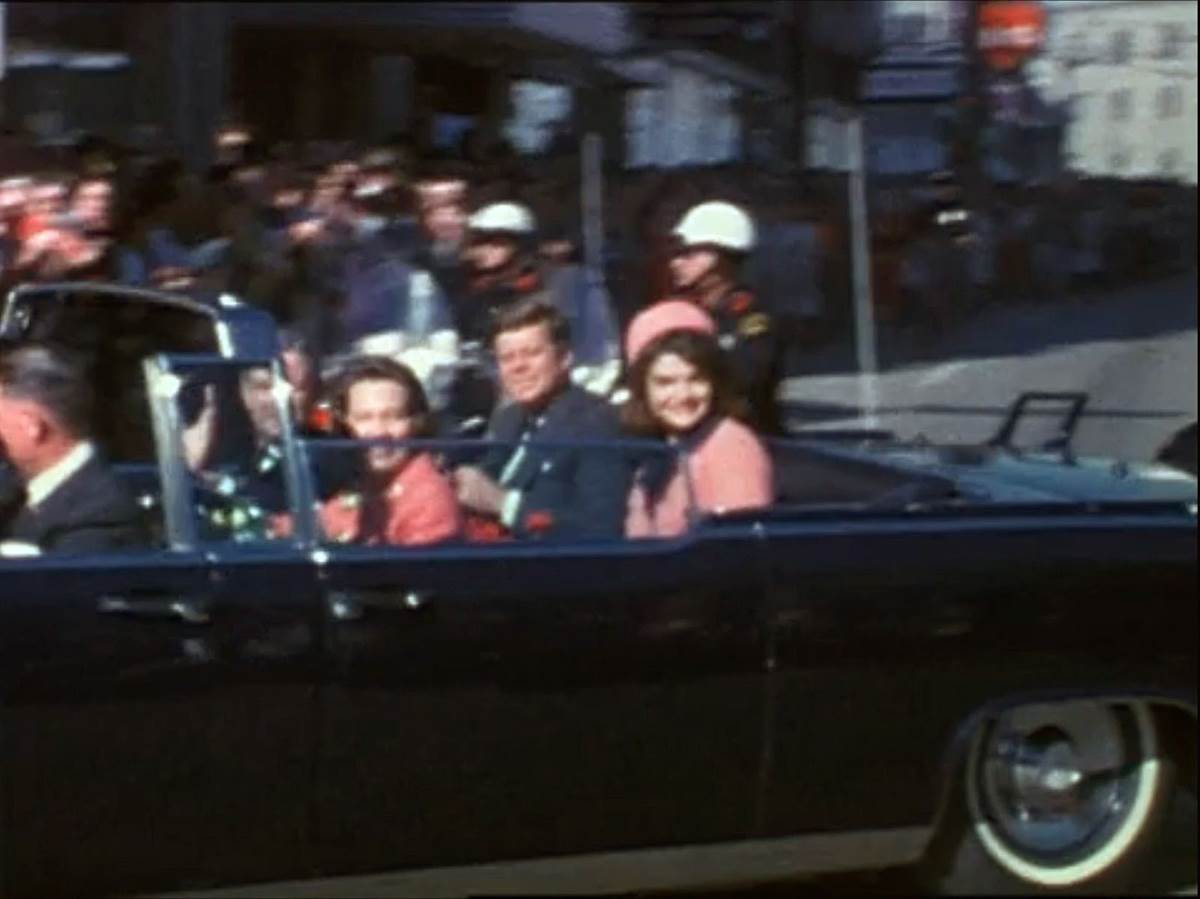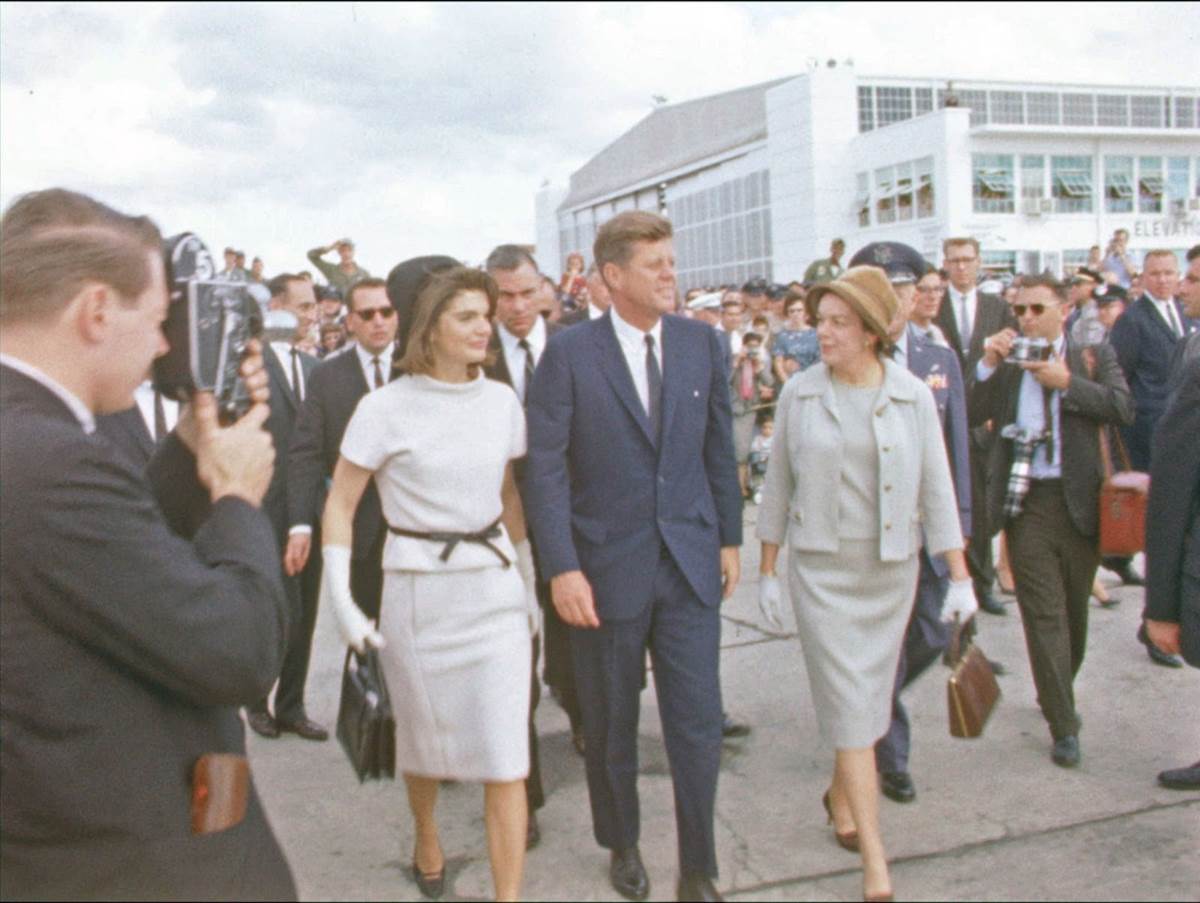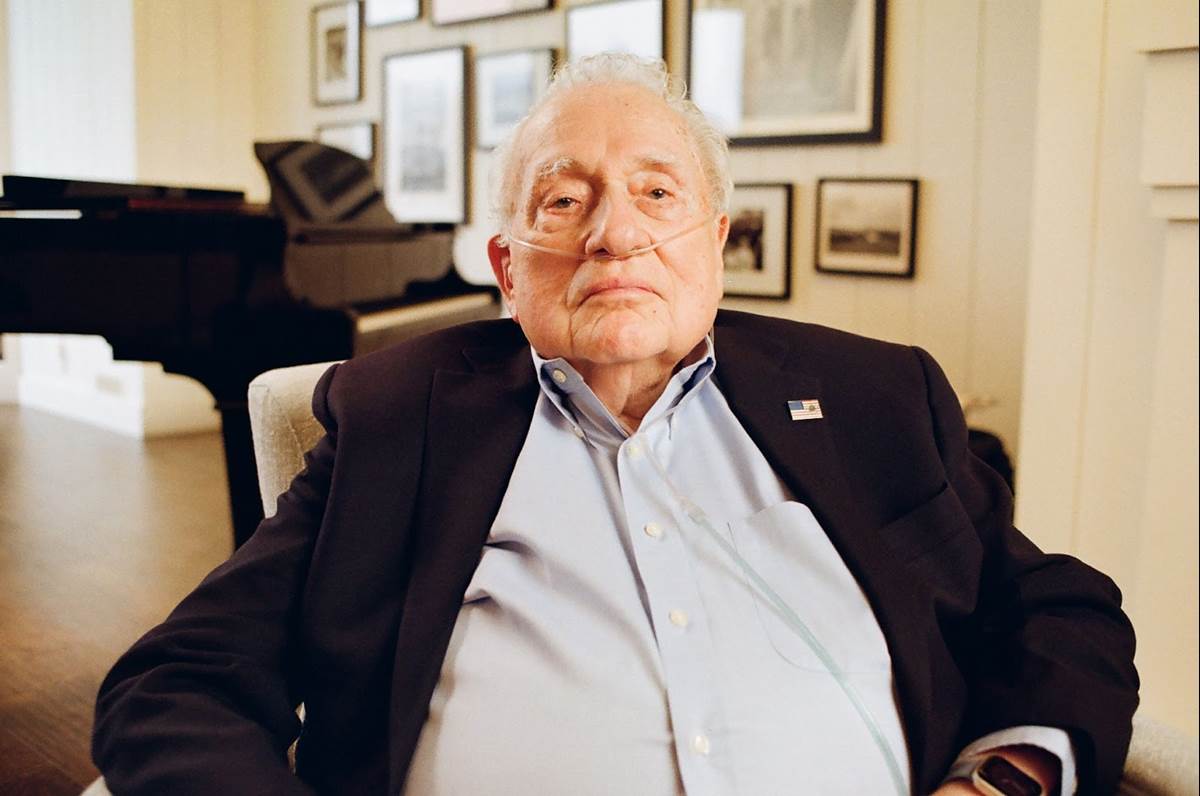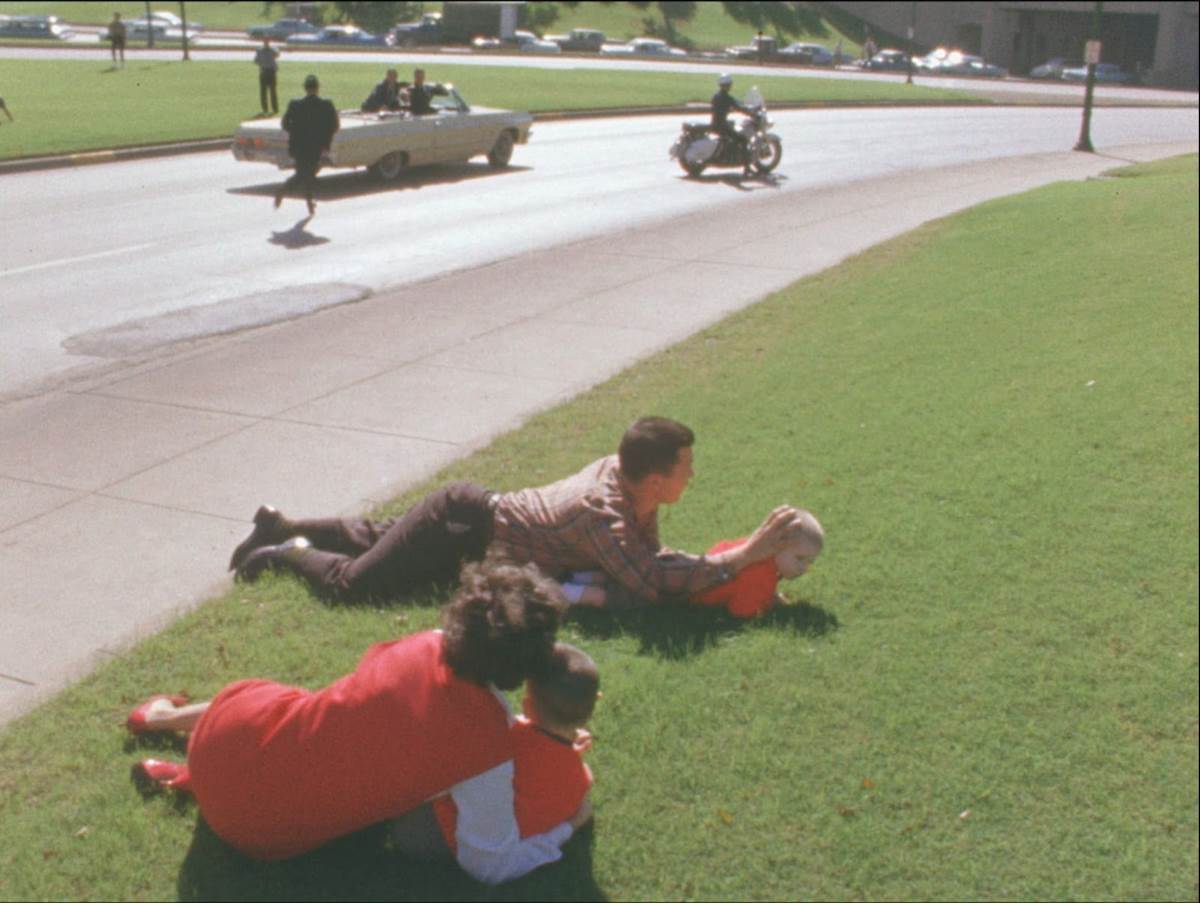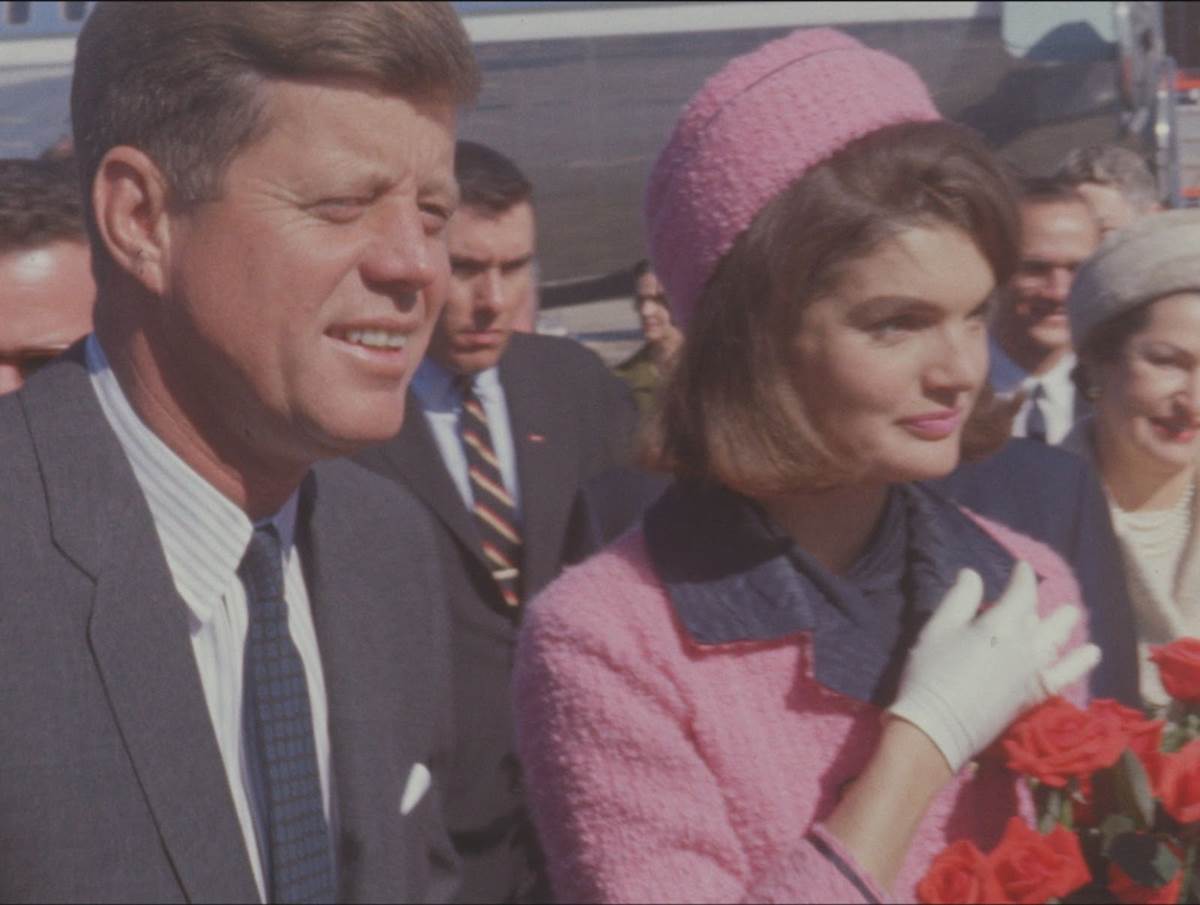TV Review – National Geographic’s “JFK: One Day In America” Commemorates Assassination’s 60th Anniversary
Next week will see the debut of a new three-part documentary series from National Geographic, entitled JFK: One Day In America. Laughing Place was fortunate enough to be given access to advance screeners of the entire series, and below are my thoughts on this new docuseries.
60 years ago this November, the United States of America and the entire world were rattled by the assassination of President John F. Kennedy in Dallas, Texas. And these six decades later, historians are still discussing this tragedy as one of the major events that changed the course of human history in the 20th century. That’s why the new docuseries JFK: One Day In America (following up on National Geographic’s 9/11: One Day In America from 2021) feels relevant, despite the infamous assassination having been covered so many times before in both nonfiction and narrative films. Personally, as a teenager I was admittedly rather obsessed with the event, mostly because pop culture I loved– such as Oliver Stone’s film JFK, the sci-fi TV series Quantum Leap, and The X-Files– featured it so prominently. But One Day In America’s take on it feels at least a little bit different in that it bypasses conspiracy theory-minded conjecture almost entirely, instead smartly choosing to zoom in on interviews with the few still-surviving eyewitnesses and their stories, coupled with archival footage from that titular day.
Truthfully, JFK: One Day In America isn’t all that appropriate a title, seeing that the documentary actually covers the span of five days– from Kennedy’s arrival in Fort Worth, Texas on November 21st, 1963 through to his funeral on the 25th. The episodes divide that time neatly into three section, with the first installment “assassination" ending at Dealey Plaza, the second chapter “Manhunt" focusing on the search and capture of Lee Harvey Oswald, and the third covering Oswald’s slaying by Jack Ruby and the reverberations thereof. Interviewees include former Secret Service agent Clint Hill, who famously rode on the back of JFK’s limo during the motorcade, journalists Peggy Simpson, Sid Davis, and Bill Mercer, who were both on hand in Dallas to cover the events as they unfolded, and Buell Frazier, who actually drove Oswald to work at the Texas School Book Depository that morning. Another Secret Service agent, Paul Landis– who was assigned to protect the First Lady Jacqueline Kennedy– was so traumatized by the assassination and its aftereffects that he resigned from his post six months afterward, and his on-screen testimony is especially poignant.
And while many of the moving images that play over these interviews will be familiar to viewers, there’s also a lot included here that even I, as a one-time JFK assassination buff, hadn’t remembered seeing before. I will say there is one sticking point that I had over the included footage, and that’s the colorization of archival shots that for 60 years previously had only been seen in black and white. Film historians have long argued against the colorization process, and I have to say that I agree. Producers of One Day In America stated at a recent media event that this choice was made to draw in younger viewers– that potential audience members of the current generation are turned off by the lack of color in old footage. That may certainly be the case, and it wouldn’t it all surprise me if it were, but should National Geographic really be pandering to those that are unwilling to shatter their own entertainment prejudices just to get more youthful eyeballs on an otherwise well-put-together documentary? I would like to think the original footage would hold up perfectly well on its own without the guesswork and technological tinkering necessary to bring color into it.
But like I said, in just about every other aspect, JFK: One Day In America is an extraordinarily strong document of one of this country’s darkest days in the last century, perhaps so much so that it could hypothetically be considered the final word on the John F. Kennedy assassination. I was particularly fascinated by the facets of these events presented here that I had never before considered, such as Jacquie Kennedy’s almost Taylor Swift-like celebrity reverence among the public. I also really admire filmmakers Dan Lindsay (LA 92) and T.J. Martin’s (Tina) decision to steer away from conspiracy talk, except for one brief mention at the end of the third episode and a title card informing the audience of the Warren Commission’s conclusive findings. There’s a place for that kind of thing, and I’m not afraid to say I find it incredibly interesting as well, but this effort is more about recording the memories of those who were there to see the events unfold firsthand. For that reason, it’s a unique, transportive, and unendingly engrossing history of those five days and how they impacted the people who were present.
All three episodes of JFK: One Day In America will premiere on National Geographic this Sunday, November 5th and will be released to stream the following day via both Hulu and Disney+.



